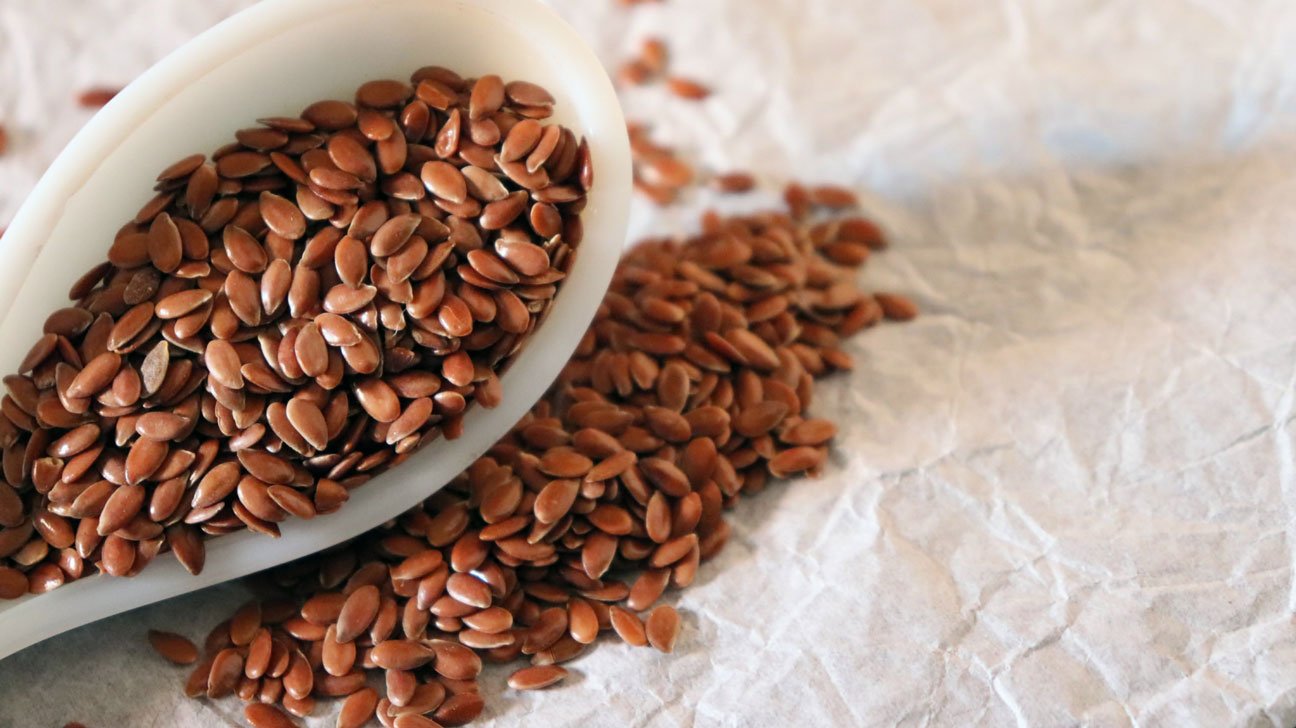Properties of flax seeds against cholesterol: thanks to their nutritional benefits, flax seeds are ideal for high levels of fat in the blood.

There is no doubt that high cholesterol levels can become a serious health problem, especially because it increases the cardiovascular risk of the person, especially when LDL cholesterol levels are high and HDL cholesterol levels are lower than what medically recommended.
This is due to the fact that LDL cholesterol is deposited in the arteries, which increases coronary risks, while HDL cholesterol helps in its elimination. Hence, it is essential that HDL cholesterol is above bad cholesterol levels.
With regard to cholesterol levels, total cholesterol should not exceed 200 mg / dl. While LDL cholesterol should not exceed 130 mg / dl., And HDL cholesterol should not be above below 35 mg / dl. In men and 40 mg / dl. In women.
Although adequate medical treatment is following a balanced diet based on a healthy diet and eliminating other habits such as alcohol or tobacco, we must not underestimate the properties of an equally healthy food that can be very useful for cholesterol: the seeds of flax.
What are flax seeds?
The flax seeds are a particularly rich seeds both fiber and omega 3 fatty acids, so that the as with the soy lecithin, is recommended for food control cholesterol.
They can be consumed whole or ground, and their advantage is that we can find them in many supermarkets or large stores, thanks to the fact that their consumption has increased considerably in recent years.
Flaxseed benefits
- Cholesterol at bay: thanks to its high content of omega 3 and omega 6 fatty acids, it is especially useful in case of high cholesterol, helping to control high levels of fats in the blood.
- Glucose control: especially useful in controlling blood glucose.
- Good scrubber: thanks to its fiber content it helps our body to purify itself, eliminating those toxins that it accumulates and yet does not need.
- Ideal against constipation: thanks precisely to its high fiber content, helping to prevent or reduce constipation.
- It favors a good digestion: thanks above all to its content in digestive enzymes.
Nutritional properties of flax seeds
- Rich in polyunsaturated fatty acids omega 3 (75%) and omega 6 (25%).
- Vitamins: vitamin E and vitamins of group B.
- Minerals: iodine, iron, zinc, magnesium, calcium, potassium, manganese, silicon, copper, nickel, phosphorus and chromium, among others.
- Rich in enzymes ideal for digestion.
How to make flax seed milk:
Although it is more common to consume it in the form of salads, or even by adding flax seeds to juice or milk, it is also possible to make delicious flax milk at home.
It is an interesting option, especially if we take into account that we practically do not find it in supermarkets and herbalists, since soy milk or rice milk is not so common.
Ingredients:
- 1 cup flax seeds
- 1 liter of water
Preparation:
- First pass all the flax seeds through a grinder.
- Then blend together with the liter of water.
- In a saucepan, let it rest for 3 hours.
- Finally filter and sweeten to taste.































